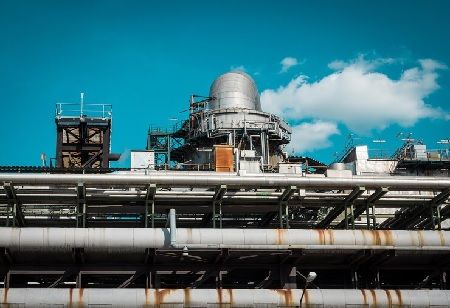
Bengaluru Airport City, GAIL Gas Partner to Expand Distribution
- BACL, GAIL Gas partner for CNG, PNG facility at Bengaluru Airport City.
- Supports taxis, buses, logistics with clean energy; includes retail services.
- Aligns with India’s sustainability goals, enhances Airport City’s green hub status.
Bengaluru Airport City Limited (BACL), part of Bangalore International Airport Limited (BIAL), GAIL Gas Ltd, a wholly owned subsidiary of GAIL (India) Limited, entered into an agreement to develop a city gas distribution model facility at Bengaluru Airport City, as reported by the Economic Times.
The project will include a Compressed Natural Gas (CNG) station, Piped Natural Gas (PNG) network infrastructure, and other clean energy solutions, ultimately creating a sustainable energy ecosystem at Kempegowda International Airport (BLR Airport).
Under the initiative, a CNG facility will provide gas supply for taxis, buses, logistics fleet vehicles and last-mile mobility vehicles, enhancing accessibility for commuters and providing non-fuel retail and convenience services.
Also Read: Adani Power Signs PSA with Bihar Govt for 2400 MW Supply
BACL’s CEO Rao Munukutla said, “This development embeds our leadership in sustainable urban innovation,” adding that Airport City had earned an IGBC Green Cities Platinum Rating. This development continues to enhance the attractiveness of Bengaluru Airport City as a smart, green business cluster fulfilling global sustainability standards.
Goutom Chakraborty, the chief executive officer of GAIL Gas, stated, “The CNG station will serve thousands of vehicles, allowing for convenient refueling and supporting a cleaner, greener Bengaluru.” GAIL Gas is an authorized entity of the Petroleum and Natural Gas Regulatory Board and currently supplies PNG to residential households, industries, and commercial users, as well as CNG to vehicles in the Bengaluru Urban and Bengaluru Rural Districts.
The city of Bengaluru Angala will be a probably partner in moving India towards its clean energy transition and take steps to achieve national priorities that include reducing carbon emissions and increasing alternative, eco-friendly fuels in urban centers.




.jpg)
.jpg)

